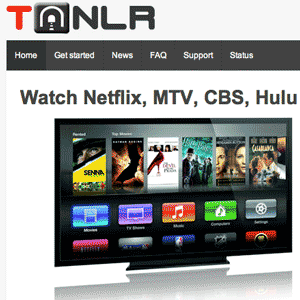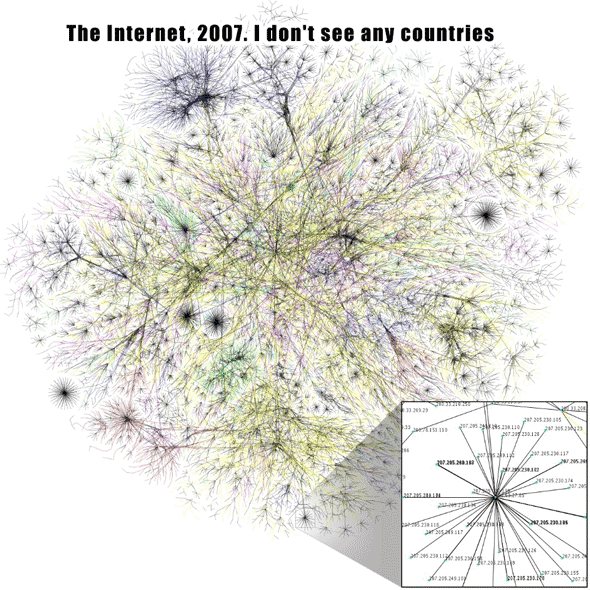While American internet users can quite happily watch Hulu, the fact that I live in the UK means I can't. Likewise, BBC iPlayer is free for UK citizens; but if your physical location says America then you're out of luck buddy. It's a frustrating state of affairs, and we won't stand for it! Neither will Tunlr.net: a new free service that aims to remove region restrictions the world over by way of some magic DNS trickery.
We are the internet generation, and we hereby refuse to accept political boundaries. There are no borders for us; Justin made that quite clear when he showed us just how this amazing internet brings people from all over the world together to produce MakeUseOf. The idea that any country could censor the internet outrages us; yet we routinely accept that licensing constraints mean streaming services are region locked. The legal reasons for this may all be well and valid, but there are no real, physical boundaries on the internet and the location based rules shouldn't apply.
I've shown you how to get around these location blocks before using a premium VPN service, but VPNs cost money and can be slow. Tunlr is hoping to solve that using a slightly different method.
How Do I Use It?
Simple. Head over to the Tunlr site, click Show Me How, and scroll down for the replacement IP addresses you should use. If you're unsure how to adjust these settings, the site contains specific instructions for changing the DNS IPs on various devices including Xbox and mobile: pretty much any internet connected device can be used. Some of the services currently supported include:
- US video streaming services: Netflix, Hulu, CBS, ABC, MTV, Crackle, Fox, TV.com, PBS, History channel
- US audio streaming: Pandora, Last.fm, Turntable.fm, MOG, iHeartRadio
- Non-US video streaming: BBC iPlayer (UK), 4oD (UK), iTV (UK), Zattoo (Switzerland and Germany)
What is this sorcery?!
Tunlr is not a VPN, but some of it's internal functions are VPN-like. A small portion of your traffic, which contains certain headers relating to location - is extracted and manipulated through VPN-like tunnels in order to fool the streaming services into thinking your in a particular, valid location. The rest of your traffic is untouched. This is what makes the Tunlr method faster than a typical VPN, whereby everything is routed through a different country.
Any downsides?
Yes. Tunlr is a free service, and as such no guarantees can be made about reliability of service, speed, or security. As their FAQ states:
We’re not aiming to provide a professional 24/7 service. Tunlr is up when it’s up, and is down when it’s down.
While changing your DNS isn't exactly difficult, Tunlr asks that you not keep the Tunlr DNS active permanently or on your router; primarily because that many requests would kill the service very quickly. Restrict your usage to when necessary only. If the servers do get hammered then you may find your internet crashes to a halt as IP addresses can't be resolved. A premium VPN service on the other hand - while perhaps being slower - is easy to activate when required, and offers a good level of security.
To be honest, I don't expect this service to be around for long - the more users it has, the more unreliable it will be, and the more content providers will sit up and pay attention. Right now though it works well; so use it while you can! There's also a question of legality of course: one Swiss TV provider has been taken off the supported matrix, though I've been unable to ascertain if this was due to legal or technical reasons.
Have you used Tunlr or had any problems getting it working? Are you a network wizard that plans to hook up a p2p based version of this, because that would be awesome if you could. Let us know in the comments! Don't forget to tell your friends: just click the share buttons below.
Image Credit: Internet map, 2007 from Opte Project



